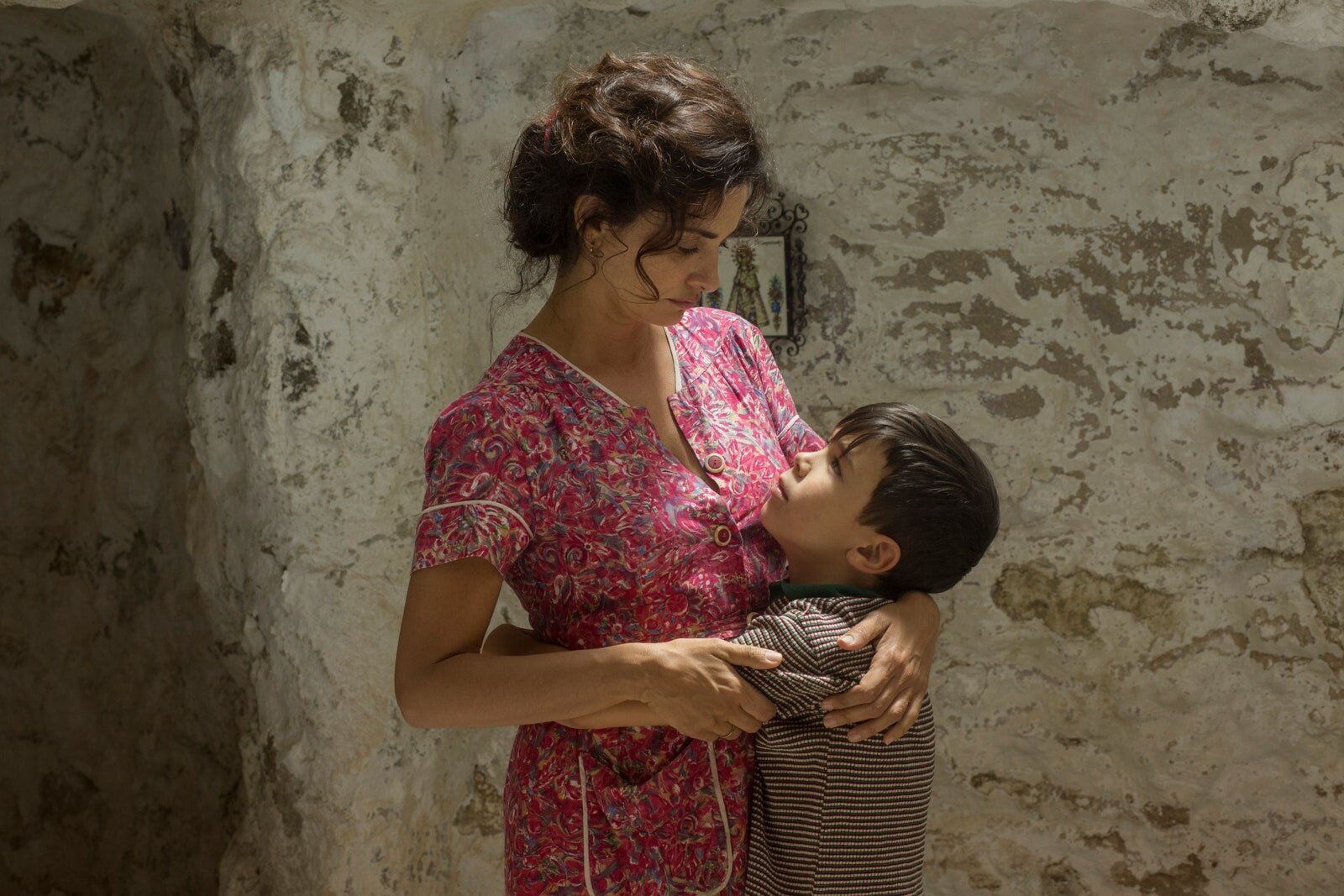‘Pain and Glory’ REVIEW: A tale of reflection and reconciliation
‘Pain and Glory’ REVIEW: A tale of reflection and reconciliation
Salvador Mallo (Antonio Banderas) and his mom (Julieta Serrano) in a scene in Pain and Glory (2019).
On the nights where several aches coincide, those nights I believe in God. And I pray. On the days when I only have one kind of pain, I'm an atheist.
We must, at some stage of our lives, make amends for what we have done and what some people have done for us. Looking back on the memories and reflecting on the past that has shaped our existence is painful, but there will always be glory in the end. It is tragic, but that is life. Pain and Glory is the story of Salvador Mallo, a filmmaker in his decline who is reflecting on the choices he has made, fearing that he may not be able to direct again as his life comes crashing down on him. Directed by Pedro Almodóvar, Pain and Glory is the most honest and personal work that he has produced, as this was almost a reflection of himself. Now, that is not to say that this film is autobiographical, as Pedro Almodóvar himself already confirmed that it is not his story, but there's almost a mixture of fiction and reality that you can sense within the film and the characters themselves.
In the film, pain is constant; from the way Mallo grew up in poverty with a father who was largely absent, to how he suffers from a series of illnesses, both physical and emotional. There is a lingering pain that is conveyed clearly to the audience; the sadness, dissatisfaction, and discouragement that is seen and felt almost throughout the film. He is lost and in old age. His need for drugs is not only an attempt to escape his painful reality but also a way to find comfort, relief, and recall some of his memories—as if the drugs bring him in a state of tranquility.
Pain and Glory's story is nothing new, there have been many films like this before, but one of the reasons why this also stands out is the way Almodóvar constructs the film. He uses intricate alternating narratives to better establish Salvador Mallo's life and the different themes of the film. The way the characters’ interact with each other is presented with intimacy and sincerity. The use of colors to convey the film’s mood as well as to show what the characters are feeling is also a decision that fits nicely into the film.
Young Salvador Mallo (Asier Flores) and his mom (Penélope Cruz) in a flashback scene in Pain and Glory (2019).
As many have pointed out, Pain and Glory contains obvious comparisons to films such as Fellini's 8½, but what distinguishes Almodóvar's film from others is his simple and pure style, which does not rely on lavish film techniques like other films. There is a certain kind of comfort in the way he presents the film: his characters are portrayed with such calm and cold demeanor, and the use of seductive spanish music and provocative set designs instantly draws you into its world. Almodóvar's narrative style has a precise agility to it, how the event unfolds and leads to one another, whether it would be a memory or fiction, or a mix of both. The juxtaposition between the achievements of the past and the failures of the present and the way he constructed it so effortlessly while maintaining a level of complexity is truly remarkable.
Of course, the film would not be as it is without Antonio Banderas. His portrayal of Salvador Mallo could not have been any better, and it might have been one of his best performances to date–it feels like he was born to play the role. The subtle nuances in the way he portrays Mallo, the way he expresses pain and guilt purely and solely through his eyes, and how his presence alone adds so much depth to the character, which really complements the film.
Pain and Glory is a poignant film to say the least, it is a brilliant exploration of success, memories, and how life is in the world of art. The narrative's playful and fluid structure, and the way it casually goes back and forth from past and present lets the viewer be fully captivated with Salvador Mallo's life as he reflects upon his childhood. It can be nuanced and touching at times, and it can also be life-affirming to some. The film's colorful yet naturalistic tone allows for the audience and the film to focus more on the character of Mallo, just as much about Almodóvar. The film is an introspective piece, as a whole it really captures what life feels like–jagged, unfinished, unfocused, and bittersweet. It is self-reflective and a bit self-indulgent at some points, which may be off-putting to some, but it's handled with such great sensitivity and subtle relentless yearning; exploring how our relationships with our mothers continue to influence and affect us long after they die, how love and sexual adventures may affect our lives, and how our physical torment and emotional suffering are interconnected with each other. Almodóvar's approach to Pain and Glory would easily bind and move the viewer to the tale of reflection and reconciliation on one's past self.















